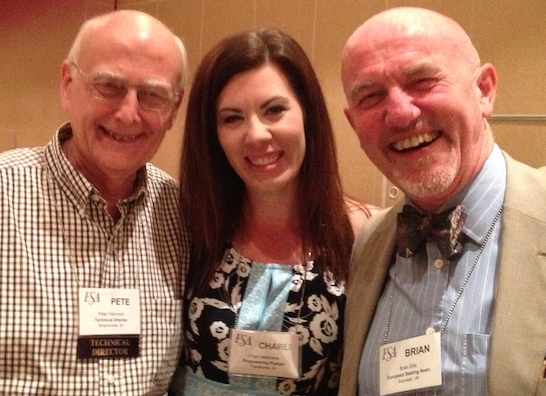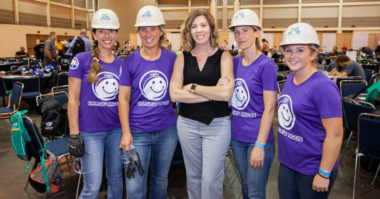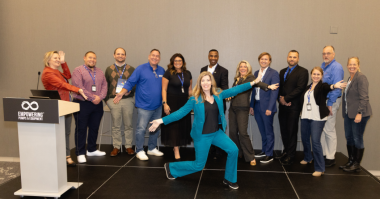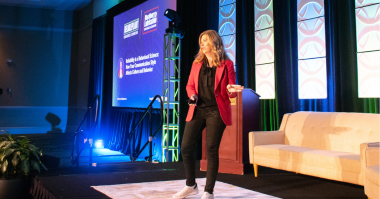Throughout my years in the pump industry I’ve come to respect and admire many pump industry professionals who have so generously shared the knowledge they’ve earned from decades of diligent work and experience; leaders we look to for guidance with the understanding that they have played such a vital role in the development and technological advancement of our industrial generation.
One thing you definitely learn when working in the pump industry is the value offered by many who have ‘been there and done that’ because the fact is that there are simply some lessons you cannot merely learn from studying books.
It takes time living with the realities of our industry and seeing the successes and challenges that have been faced in order to effectively deal with each new situation that comes up. Using the basis of knowledge from experience is a fundamental aspect of facing unforeseen occurrences and coming out on the other side with comprehensive solutions.
While thinking about how fortunate so many of us are to have had the opportunity to learn from those who have been involved in the pump industry long enough to share their experiences, I began to wonder: What will happen when they retire and new leaders take the reins? How will new talent enter this industry, keep things afloat, and continue the momentum of their predecessors?
An industry leader at the FSA shares his experience
As the Marketing Committee Chair and member of the Technical Coordinating Committee of the FSA (Fluid Sealing Association), I had the privilege of discussing these concerns with a member of the FSA staff and highly experienced industry leader nearing retirement, Pete Petrunich the Technical Director of the FSA. Although each organization may have differing elements of focus in ensuring the next generation of pump professionals will maintain the progressive momentum of their company or organization, I believe many of the things I learned from my discussion with Pete will ring true industry-wide.
At the FSA, the majority of the roles and responsibilities are performed by volunteer representatives of member organizations. Member companies and member divisions (five of which are product-oriented divisions) often include companies who may be considered competitors in the pump industry field, however, within the FSA these organizations come together to work toward their common goals and to contribute to the FSA’s principle mission: Education.
I asked Pete how he personally thought the next generation of leaders would be able to keep things moving forward and if he had any advice to help facilitate their future success. As the Technical Director, Pete’s perspective proved to be much more encompassing than merely relating to the ways technology itself could be leveraged for upcoming generations; in fact, as the Technical Director one very critical element of his experience could be considered to be a golden thread of importance across all organizations, this being the concern of information management.
New opportunities for training the next generation through the advancements in technology
When Pete first graduated from college and began his career, he and his fellows did not have the many technology platforms available for managing and sharing the fundamental data required to keep an organization operational and to pass on the knowledge of experiences and training from one generation to the next. Spreadsheets to save in electronic folders, email to quickly get information from ‘point a’ to ‘point b’, and electronic document storage that people could log in to add or take away information were all non-existent when first starting his career.
What Pete has seen transform the way the pump industry functions on a daily basis is the same thing that we can all enjoy the confidence in knowing is going to provide a dramatic amount of support in the process of passing the torch to the next set of leaders.
One example Pete noted is the knowledge base in a SharePoint content management system under development by the Mechanical Seal Division of the FSA. With the help of this computer program a great deal of information, which may in the past only have been available to those within reach of the paper documentation and those who knew the right questions to ask, is now going to be readily available to anyone with an Internet connection.
By taking advantage of the new ways to share and receive information, knowledge gleaned from the experience of former industry professionals can much more easily be passed down to assist in the education and training of new people ready to do their best to help continue the race.
Information available through this new knowledge portal will include basic details like what the different types of seals are and how they’ve been effectively used in the field, as well as standards related to emissions regulations and new requirements mandatory for industrial sustainability in terms of cost, product, and overall operations.
The realities of today’s world where so many more handy tools are easy to find and use actually give the next generation an edge in being able to do a more effective job while using their time more efficiently.
In addition to the document repository being created within the FSA, they’ve also published the very popular and highly informative Sealing Sense articles for the past nine years. With the help of publications like this, it is much easier for industry pros to look back and pull out the historical information required to solve new challenges based on the much needed collection of older information, newer information, and lessons learned.
Don’t forget the personal touch!
However, just as books themselves cannot give any pump industry professional everything necessary to effectively manage each new day’s set of challenges, so too are there limitations in the world of technology.
Pete noted the fundamental importance of not only using the technologies available that make it so much easier to give and receive knowledge, but to also put a priority on never forgetting the human element and the importance of the interpersonal relationship.
The best job can only be done and growth can only be accomplished if the next set of leaders keeps in mind the necessity of relationships that involve much more than just staring at a computer screen, a phone, or any other type of mobile device and hitting “send.” Talking one on one with other industry professionals face-to-face are all experiences that can be much more revealing and rewarding than any electronic document. Continuing to share these human connections is the key to obtaining the deeper insight into the collective experiences of others: past, present, and future.
With respect to the many technological advancements Pete stated: “Fundamental changes are taking place in the marketplace and the way we do business. Since a learning curve is encountered with those changes, we must proactively ensure that the value of the advancement is effectively communicated and recognized by all members of the organization. That will help to ensure successful implemented.”
I’m very grateful to Pete for sharing his insights with the Empowering Pumps community as we all consider the many parts involved in continuing to grow stronger in business for years to come, including this ever important work of making sure we face the challenge of training new people in the industry head-on and successfully pass the torch to the next generation of industrial leaders!





Comments